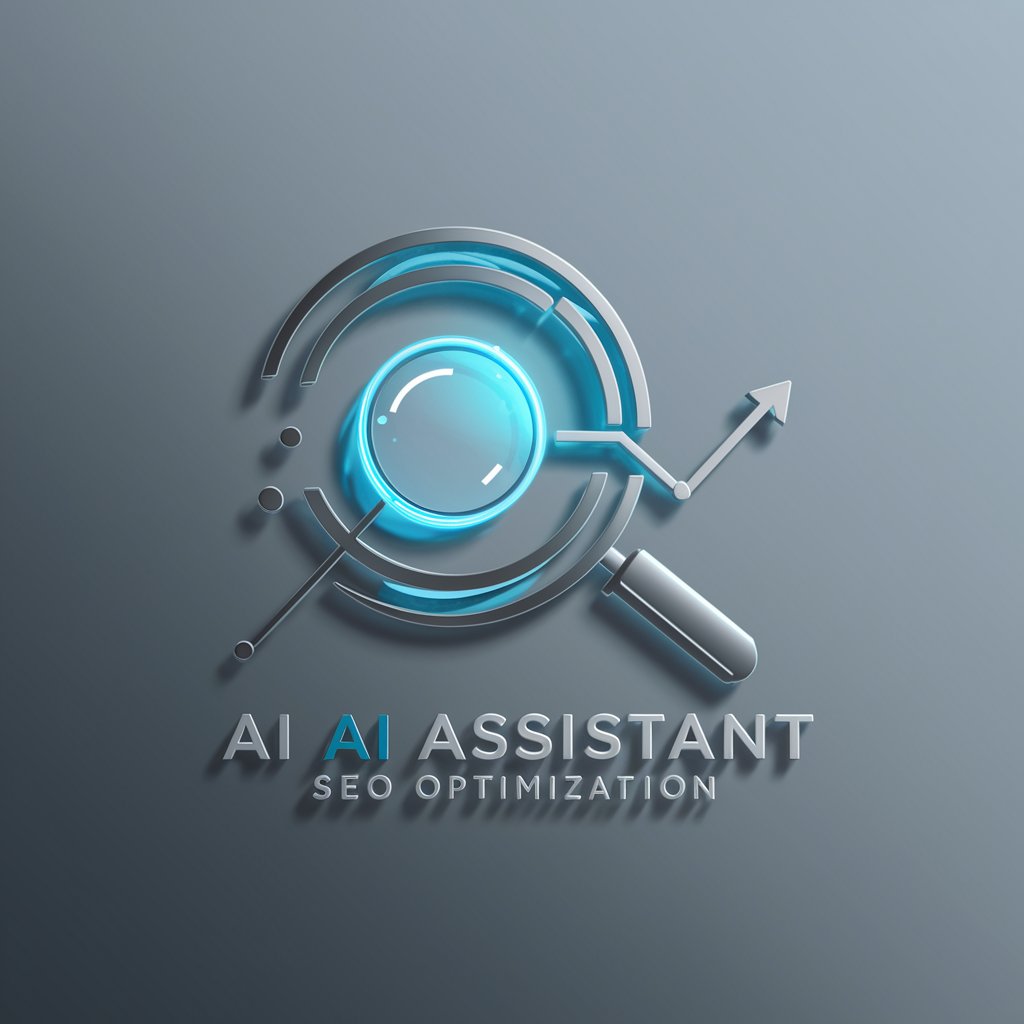
SEO - Efficient SEO Strategy

Hello! Ready to boost your website's SEO performance?
Elevate Your Online Presence with AI-Powered SEO
Analyze the SEO performance of a website focusing on domain authority and keyword optimization.
Generate a content strategy to improve search engine rankings for a specific set of keywords.
Evaluate a website's technical SEO issues and provide recommendations for improvements.
Suggest ways to build reputable backlinks to increase domain authority.
Get Embed Code
Introduction to SEO
Search Engine Optimization (SEO) refers to the methodology of optimizing online content so that a search engine prefers to show it as a top result for searches of a certain keyword. The purpose of SEO is to increase a website's visibility in organic search engine results, enhancing its chances of attracting attention and converting visitors into customers. For example, if a website selling handmade jewelry wants to increase its visibility, it would employ SEO strategies to rank higher for keywords like 'handmade silver necklaces' or 'artisan jewelry online.' The design purpose behind SEO involves understanding both the technical and creative elements required to improve rankings, drive traffic, and increase awareness in search engines. This involves tasks ranging from the words on your page to the way other sites link to you on the web, as well as making sure your site is structured in a way that search engines understand. Powered by ChatGPT-4o。

Main Functions of SEO
Keyword Research and Strategy
Example
Identifying 'long-tail' keywords for a blog about sustainable living to target niche audiences.
Scenario
A company specializing in eco-friendly products wants to capture a specific audience interested in sustainability. By conducting keyword research, the SEO can identify less competitive, highly specific keywords or phrases (like 'biodegradable kitchen sponges') to target, drawing in traffic from consumers specifically looking for sustainable living solutions.
On-page SEO Optimization
Example
Optimizing product pages with keywords, meta descriptions, and high-quality images.
Scenario
An online clothing retailer implements on-page SEO by incorporating relevant keywords into their product titles, descriptions, and alt text for images. This helps search engines understand the content of each page, making it easier to rank these pages higher in search results for related queries, thus driving more targeted traffic to the site.
Technical SEO
Example
Improving website load speed and mobile responsiveness.
Scenario
A local restaurant's website is experiencing high bounce rates due to slow loading times and poor mobile experience. By implementing technical SEO improvements, such as optimizing image sizes and ensuring the site is mobile-friendly, the restaurant can decrease its bounce rate, improve user experience, and potentially rank higher in mobile search results.
Content Creation and Marketing
Example
Developing a series of blog posts that answer common questions related to a business's services.
Scenario
A law firm specializing in family law creates detailed blog posts addressing common questions and concerns about divorce proceedings. This strategy not only positions the firm as an authority in its field but also captures organic search traffic from individuals searching for these specific questions, leading to increased visibility and potential client engagement.
Link Building
Example
Securing guest post opportunities on reputable sites within the same industry.
Scenario
A digital marketing agency aims to increase its domain authority by acquiring backlinks from high-authority websites in the marketing space. By contributing high-quality content to these sites in exchange for a backlink, the agency improves its site's authority, which can positively affect its search rankings.
Ideal Users of SEO Services
Small and Medium-sized Enterprises (SMEs)
SMEs benefit from SEO services as they often face fierce competition and have limited marketing budgets. SEO provides a cost-effective way to increase online visibility, attract targeted traffic, and compete with larger companies without the need for large advertising expenditures.
E-commerce Websites
For e-commerce sites, SEO is crucial for driving organic traffic and improving conversion rates. By optimizing for specific product-related keywords, these sites can attract potential customers actively searching for products they offer, leading to higher sales.
Content Creators and Bloggers
Content creators and bloggers use SEO to ensure their articles, videos, and posts reach a wider audience. By optimizing their content for search engines, they can increase their content's visibility, attracting more readers, subscribers, and opportunities for monetization.
Local Businesses
Local businesses, such as restaurants, law firms, and medical practices, benefit from SEO by targeting local search queries. This helps them attract customers in their geographical area, driving foot traffic and local online visibility.

How to Use SEO Effectively
Start with a Free Trial
Begin by visiting yeschat.ai for a hassle-free trial that requires no login or ChatGPT Plus subscription.
Identify Keywords
Research and identify target keywords relevant to your content or industry to optimize your website's visibility.
Analyze Competitors
Examine your competitors' SEO strategies to understand their strengths and weaknesses, and identify opportunities for improvement.
Optimize Website Content
Ensure your website's content is high-quality, relevant, and optimized for your target keywords. Include these keywords in titles, meta descriptions, and throughout the content.
Monitor Performance
Use SEO tools and analytics to track your website's performance, and adjust your strategy based on data-driven insights.
Try other advanced and practical GPTs
SpieleCheck Writer
Crafting Engaging Game Narratives with AI

Diet Mentor
Empowering your dietary journey with AI support

RarityFinder
Unlock Your Collection's Potential with AI

Eatwell
Empowering your health with AI-driven nutrition

Pretty Dumb Blonde
Ignite Curiosity, Discover Depth

Decalcomania meaning?
Unleashing the power of AI for detailed insights

하티 SRT AI
Navigate SRT schedules with AI

SEO Content Crafter
Craft SEO-optimized content effortlessly with AI.

AfroTech Circle
Empowering Black tech professionals with AI-driven learning and networking.

留学生活AI助手
Empowering Your Study Abroad Journey with AI

Alejandra
Empowering Legal Drafting with AI

Legal Draft Pro
AI-Powered Legal Document Creation

Frequently Asked Questions about SEO
What is SEO and how does it work?
SEO, or Search Engine Optimization, is the practice of increasing the quantity and quality of traffic to your website through organic search engine results. It involves optimizing your online content so that a search engine likes to show it as a top result for searches of a certain keyword.
Why is keyword research important in SEO?
Keyword research helps you understand the terms and phrases your target audience uses when searching online. It's fundamental for creating relevant content that ranks well in search engine results pages (SERPs) and attracts the right audience.
How can I improve my website's SEO?
Improve your SEO by optimizing website content for relevant keywords, improving site speed, ensuring mobile-friendliness, acquiring reputable backlinks, and regularly updating content to keep it fresh and relevant.
What are backlinks, and why are they important?
Backlinks are links from one website to a page on another website. They are vital for SEO because they signal to search engines that others vouch for your content, which can improve your site's ranking on SERPs.
How long does it take to see results from SEO?
SEO is a long-term strategy. While some changes can yield noticeable improvements in a few weeks, significant SEO results, such as ranking in top positions on SERPs, can take anywhere from six months to a year.





